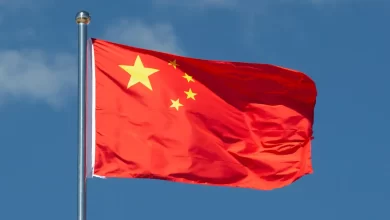Why Do Politicians Want to Ban Chinese Electric Vehicles? And What Does This Mean for EV Stocks?

Some politicians think high tariffs aren’t enough to safeguard the U.S. EV market
Source: shutterstock.com/JLStock
Back in November, I wrote that Republican politicians were displaying a strong anti-electric vehicle (EV) stance. The list included former President Donald Trump as well as his former challengers like Governor Ron DeSantis and Vivek Ramaswamy. While not much has changed on that front, politicians on both sides of the aisle now seem to think that the U.S. economy is best served by keeping Chinese EVs out. In fact, Senator Sherrod Brown (D-OH) has called for President Joe Biden to enact a nationwide Chinese EV ban. In the classic zero-sum game of financial markets, that’s good news for U.S. players but extremely bad for Chinese EV stocks.
This news comes at a critical time for U.S.-China trade relations. Last week, U.S. Treasury Secretary Janet Yellen expressed concerns regarding the potential “impact of Chinese industrial overcapacity” on the economy. As U.S. EV sales growth has slowed recently, it makes sense for politicians to focus on measures that could help U.S. companies. This, in turn, could prove domestic EV stocks with the boost they need to start rising again.
First, though, investors should understand what politicians are trying to accomplish with a proposed Chinese EV ban.
Does the Chinese EV Ban Matter for EV Stocks?
The notion that U.S. politicians are fighting for a Chinese EV ban may strike some as odd. After all, few Chinese companies are actually selling EVs in the United States anyway. This is chiefly due to the already high tariffs that President Joe Biden has kept in place to help spur growth for domestic automakers. Still, Brown thinks that the government needs to put its foot down further to ensure that low-cost Chinese EVs don’t flood an already complicated market.
Hailing from Ohio, Brown is well-qualified to speak on this matter. Ohio has seen so much economic strife that the Economic Policy Institute reports its economy “no longer fully recovers after recessions.” That’s due in part to the fall of the auto industry in the state. Indeed, staying competitive in the industry has proven to be a challenge for many states who were once thriving manufacturing hotbeds.
In a letter to Biden, Senator Sherrod Brown laid out his reasoning for why a Chinese EV ban is needed to safeguard U.S. industry:
“Ohio knows all too well how China illegally subsidizes its companies, putting our workers out of jobs and undermining entire industries, from steel to solar manufacturing. We cannot allow China to bring its government-backed cheating to the American auto industry. The U.S. must ban Chinese electric vehicles now, and stop a flood of Chinese government-subsidized cars that threaten Ohio auto jobs, and our national and economic security.”
Of course, Ohio isn’t the only state that stands to suffer losses if Chinese EV makers find a way into the country. With EV demand currently faltering, all companies that build in the U.S. could be negatively impacted if buyers are suddenly offered new, lower-cost options. But Biden is prioritizing domestic EV production. If anything, he will likely take further measures to support U.S. companies. This means investors shouldn’t be too worried about U.S. EV stocks.
What Comes Next
While this news could be a boon to U.S. EV producers, it will likely push down Chinese EV stocks. The United States remains one of the world’s largest EV markets and it’s becoming increasingly clear that Chinese automakers aren’t likely to gain much access to it. Even if Trump is elected to the presidency again, that isn’t likely to change, as he has a history of levying high tariffs against China. Trump has made it clear that he plans on redoubling this focus if he returns to the White House.
The need to make sure Chinese EVs are kept out of the U.S. market is a policy issue uniting both parties right now. For investors, this focus means that U.S. EV stocks could start to rebound. Meanwhile, their Chinese peers will face a more difficult battle.
On the date of publication, Samuel O’Brient did not hold (either directly or indirectly) any positions in the securities mentioned in this article. The opinions expressed in this article are those of the writer, subject to the InvestorPlace.com Publishing Guidelines.



